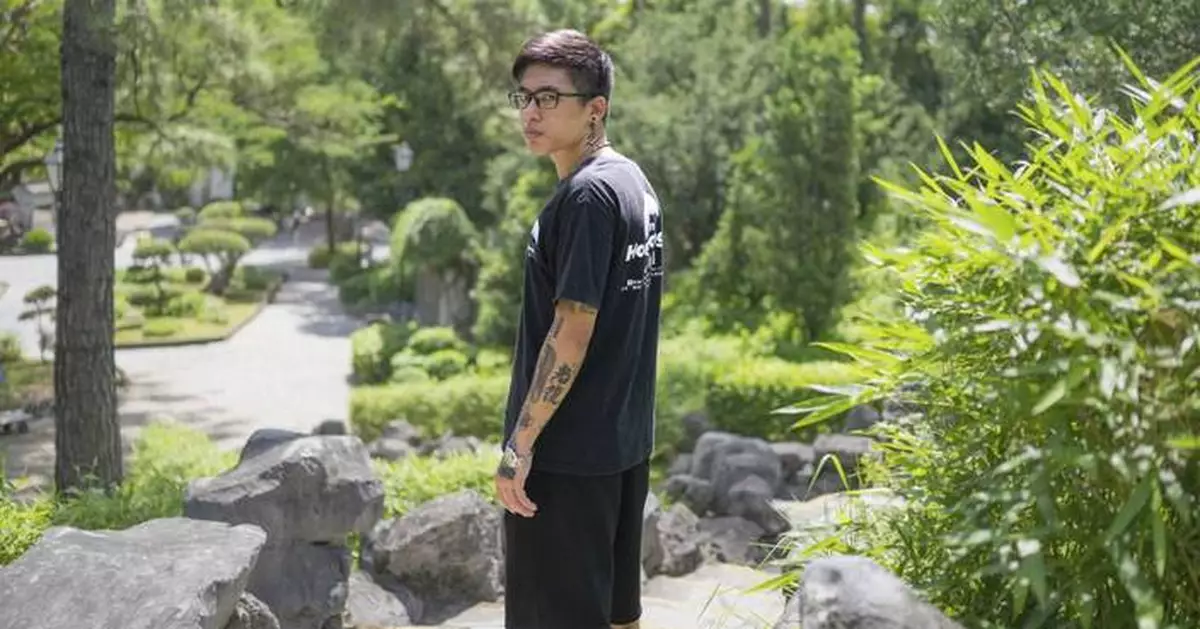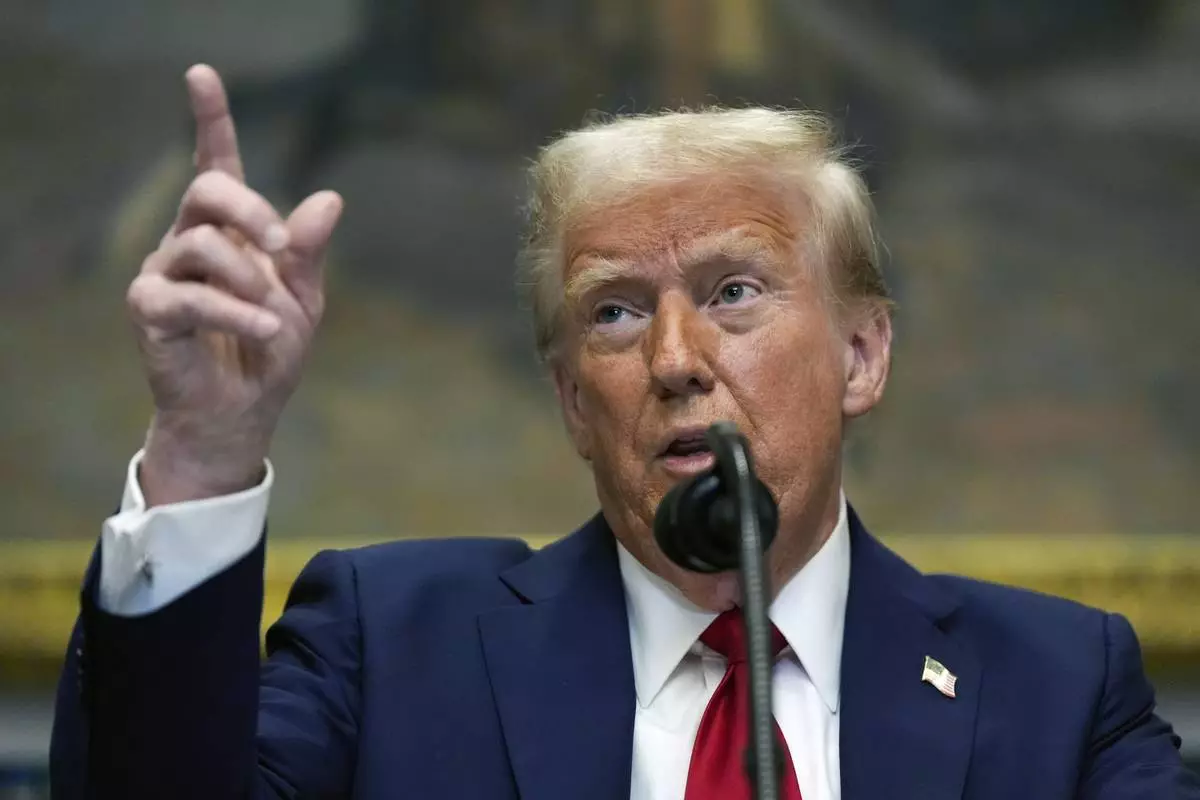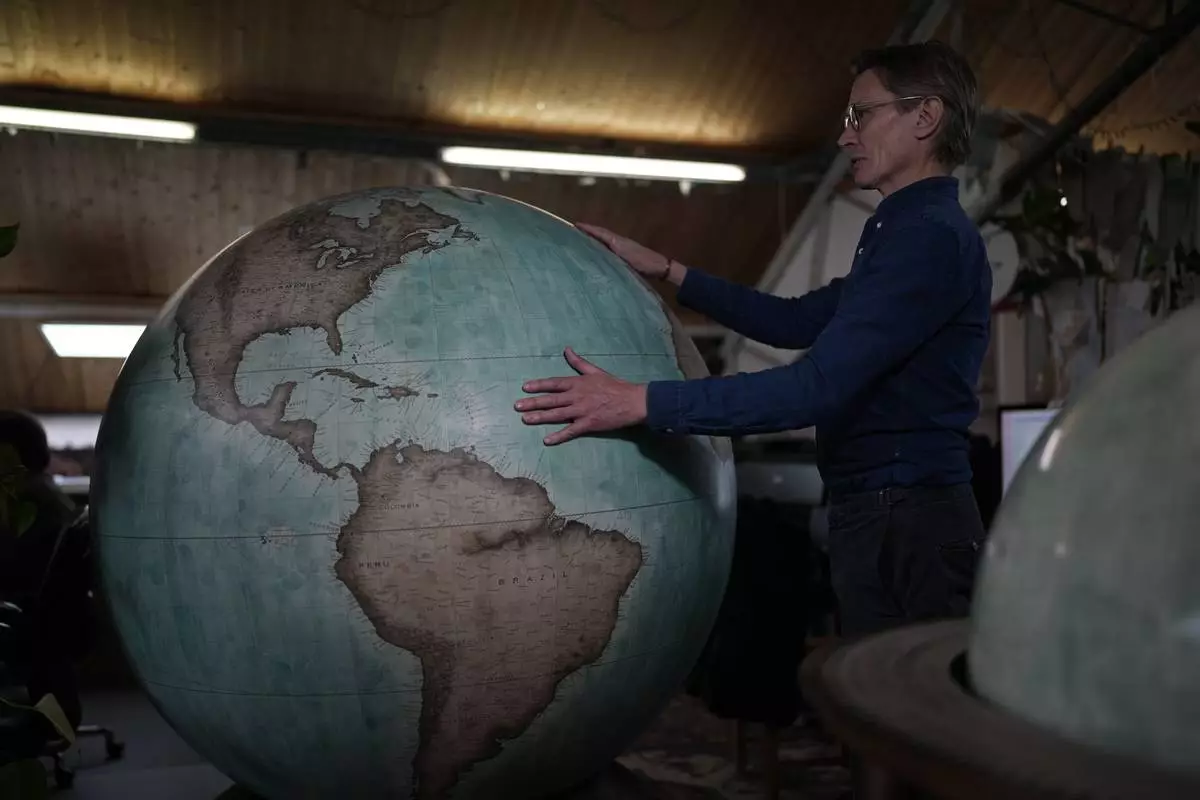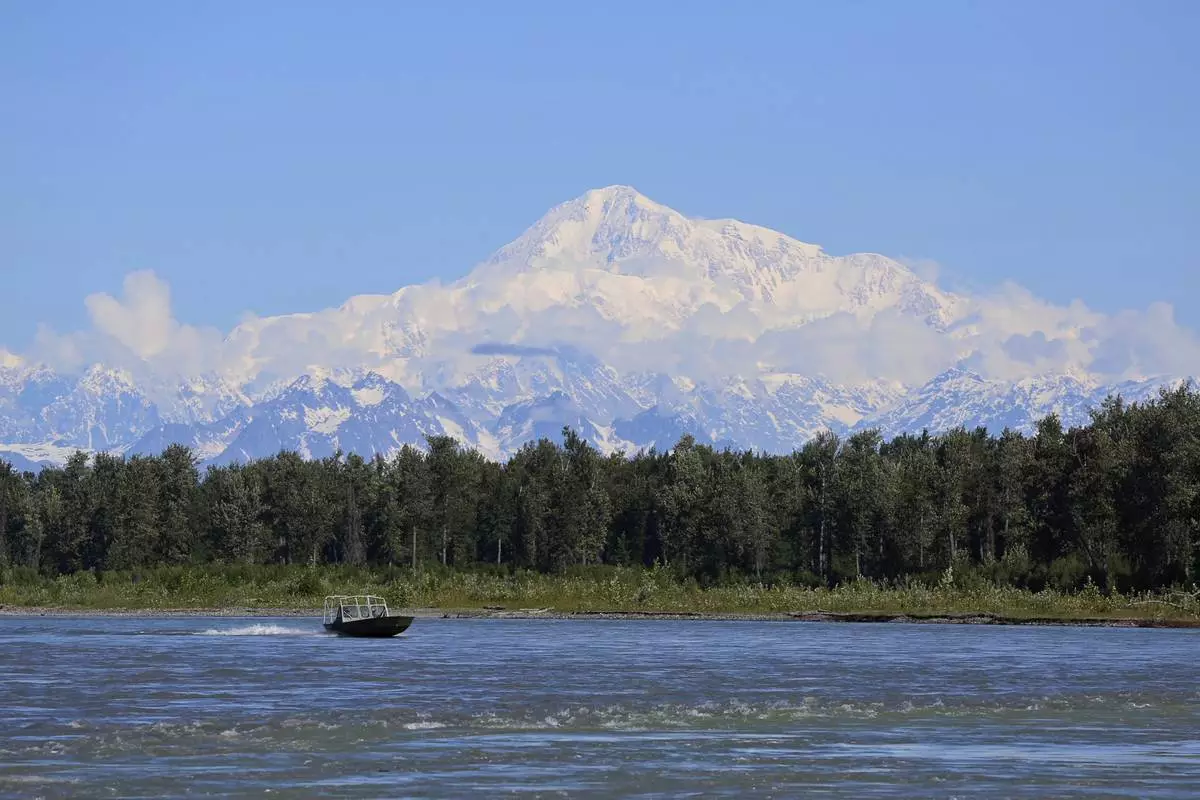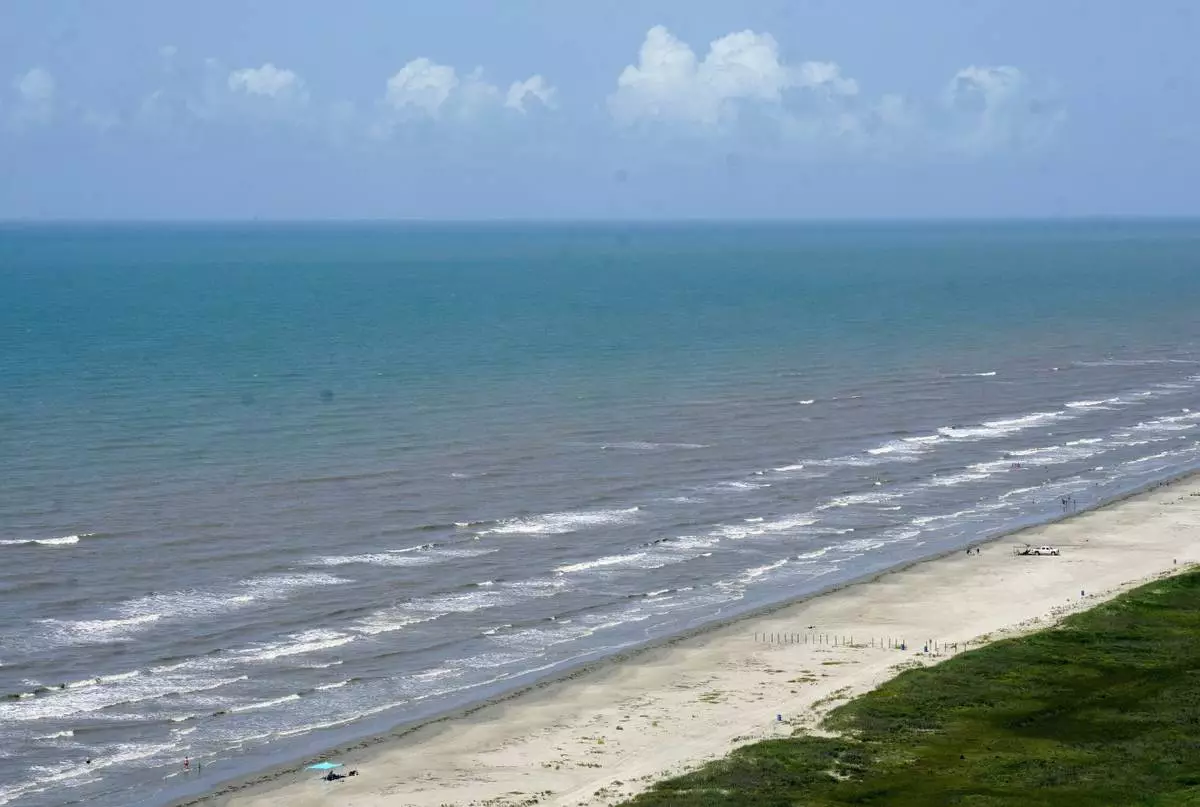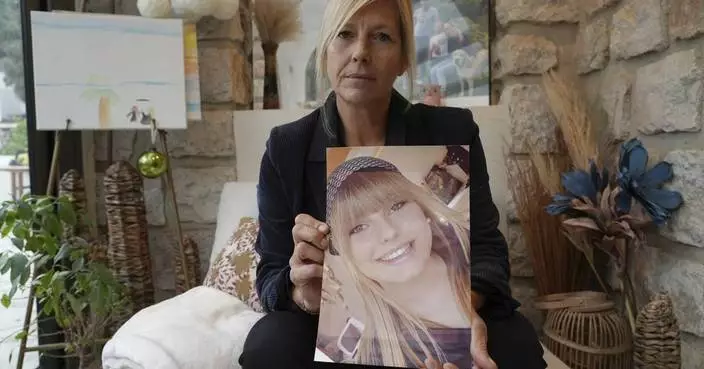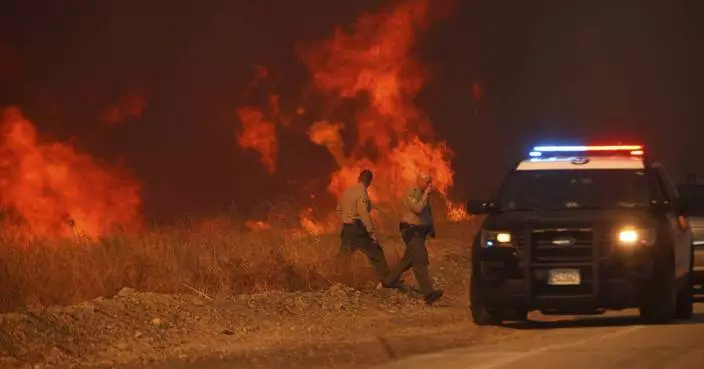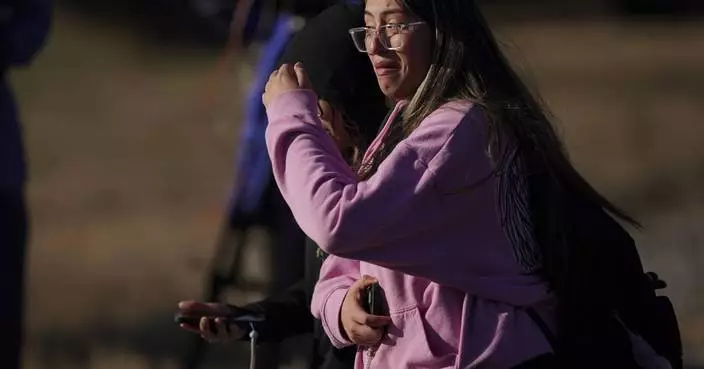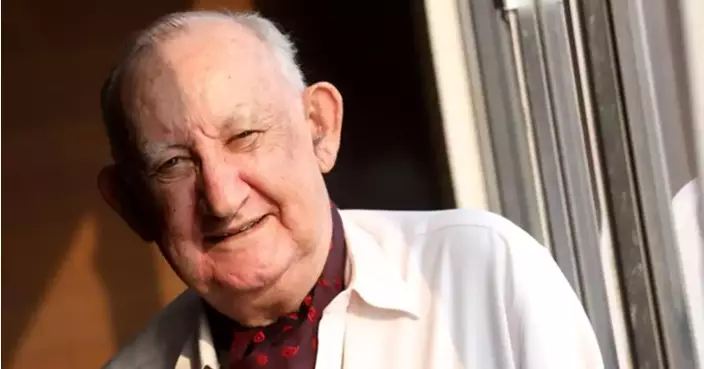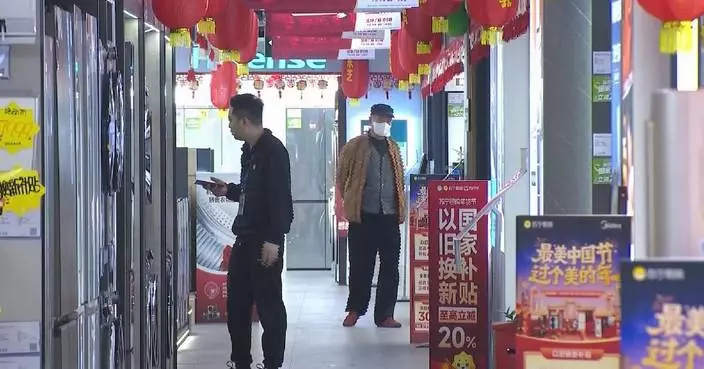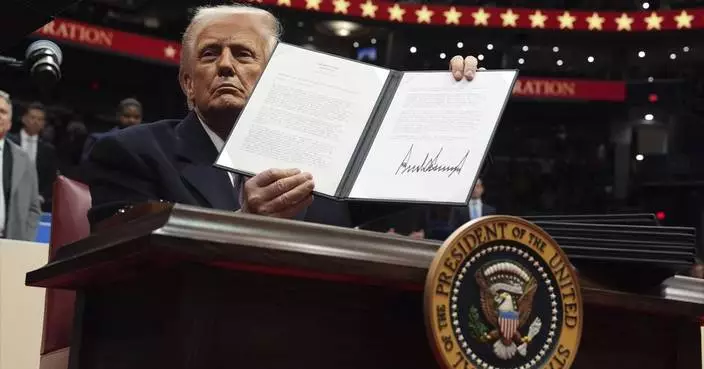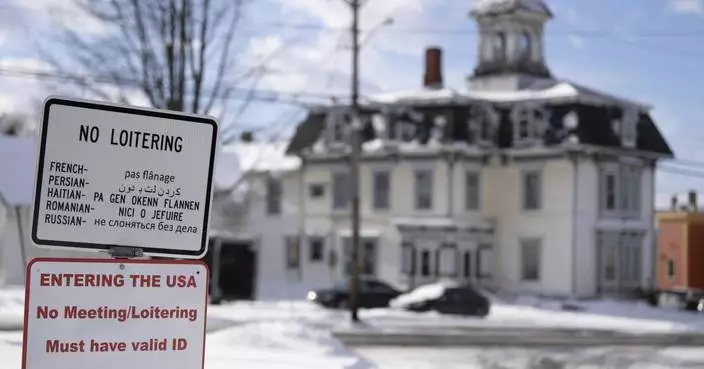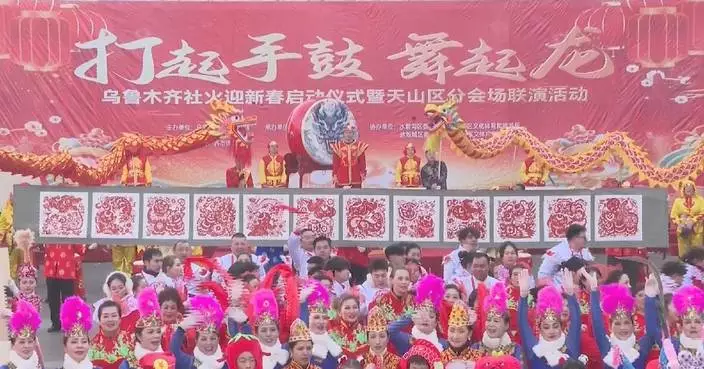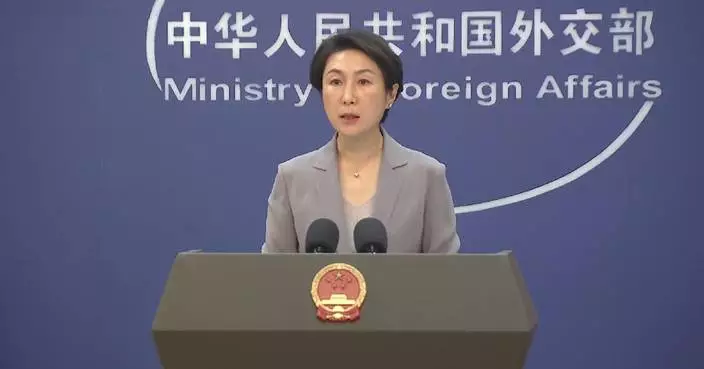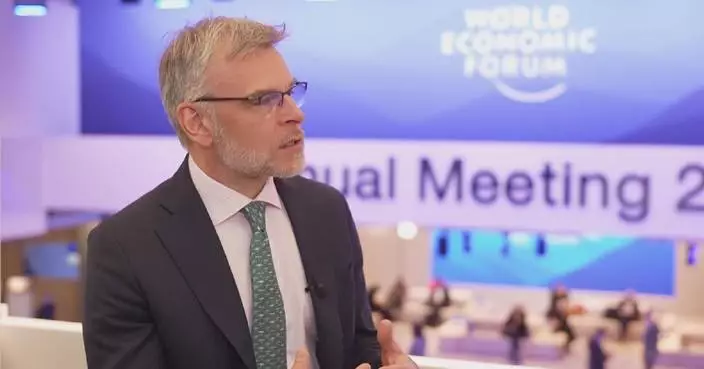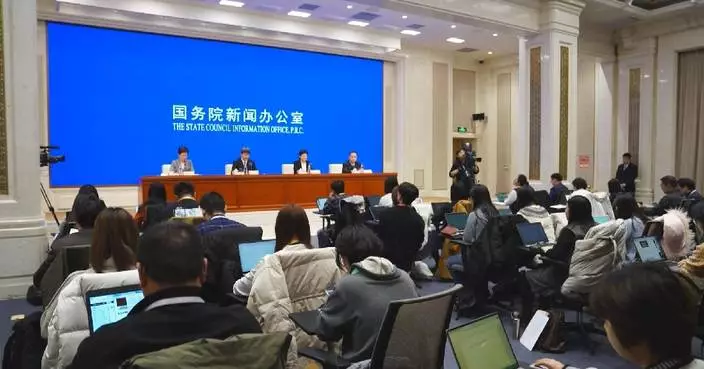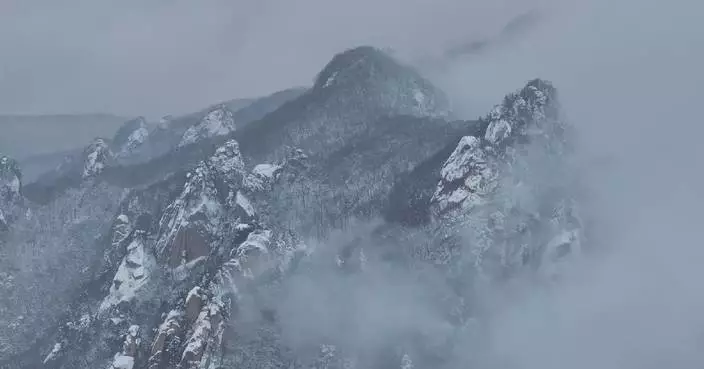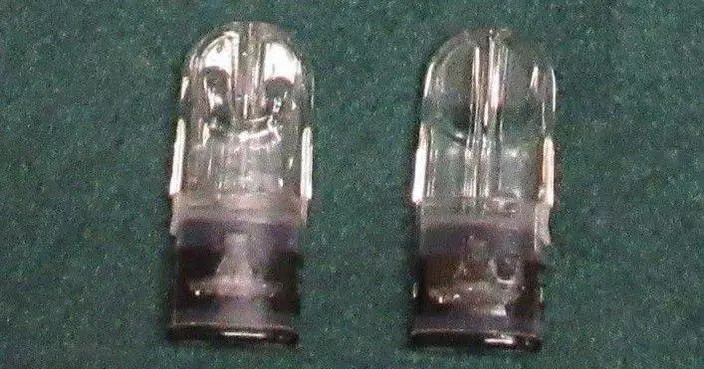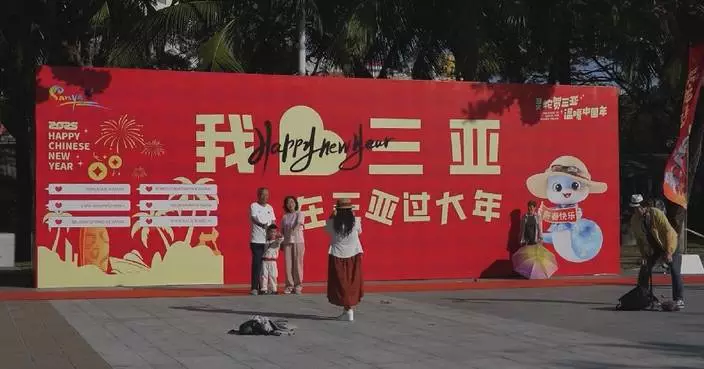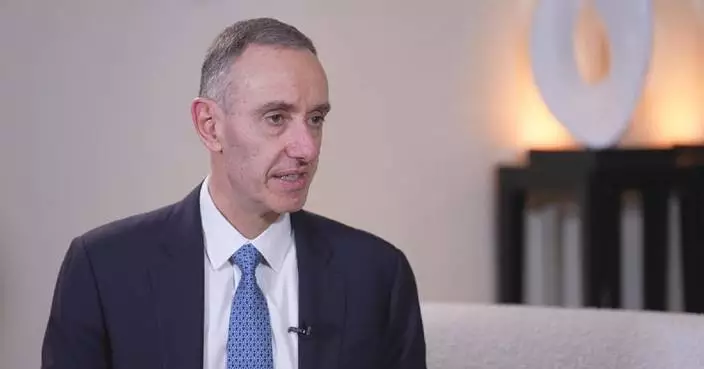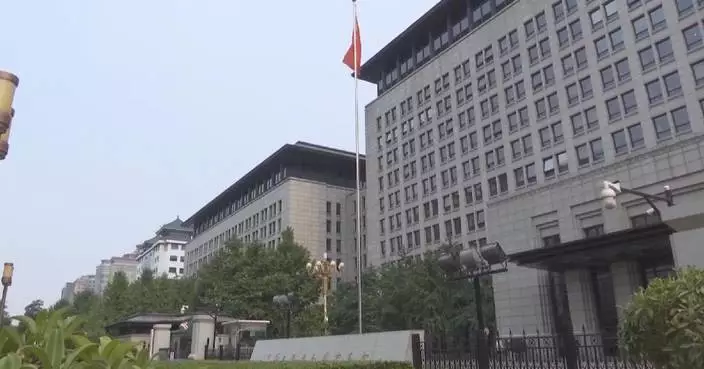HONG KONG (AP) — After spending five months in jail for publishing seditious Instagram posts, Joker Chan returned to a harsh reality.
Chan, 30, was sentenced in 2022 for posts containing slogans like “Liberate Hong Kong, revolution of our times,” which were popularly chanted during massive anti-government protests in the city in 2019. Authorities said such slogans could imply separating Hong Kong from China — a red line for Beijing.
Upon his release, Chan's criminal record barred him from returning to the hotel industry, where he previously worked as a chef. Tattoos on his arms, legs and the sides of his neck — some related to the protests — made his job search more difficult. Now, he works as a part-time waiter, earning about half of what he used to make.
Some of his friends severed ties with him, fearing their association might lead to police investigations. His family also expressed disappointment in him, and when he went out with other former protesters they asked him whether he planned to stir trouble.
“I felt helpless. I can’t understand this,” he said, wearing a black t-shirt that read “I am Hongkonger" and with a tattoo of his inmate number on his arm.
Five years after the protests erupted, the lives of some young people who were jailed or arrested during Beijing’s political crackdown on the city's pro-democracy movement remain in limbo. Unlike famed activists, these former protesters usually receive little attention from most of the city, even though their activism for the same democratic goals has exacted a similarly heavy toll.
Since the protests broke out five years ago, more than 10,200 people have been arrested in connection with the often-violent social unrest sparked by a now-withdrawn extradition bill, which would have allowed suspects in Hong Kong to be sent to mainland China. According to police, about one-fifth of them have faced or were facing “legal consequences” as of the end of May.
The government crackdown expanded after Beijing imposed a national security law in 2020 and the enactment of similar, home-grown legislation in March. About 300 others were arrested under the two security laws and other offenses linked to endangering national security as of June, with half of them already convicted by courts, the city’s security bureau said.
Chan fought for a more democratic Hong Kong, a goal that many in the city have yearned for since the former British colony returned to China in 1997. Reflecting on his actions, Chan said he would have been more cautious if he could go back in time, but he doesn't regret what he did.
“Regret can lead you to overturn what you originally firmly stood for,” he said.
Chan was an exception in agreeing for his full name to be published in this article. Two other interviewees The Associated Press spoke with asked to be identified only by partial names over fears of government retribution.
Another former inmate, also surnamed Chan, said he panicked every time he saw police on the streets after he finished serving his sentence in 2022, worrying he would be arrested again. Chan, who is in his 20s, refused to provide more details about his prosecution since he feared being identified by authorities.
Before he landed his current job in the creative industry, he sent applications to about 40 companies seeking employment, with only a handful offering him an interview. He said one interviewer was concerned that convicted people like him could affect their corporate image.
Even when he secured a position at another firm, he said he was treated unfairly by former pro-China colleagues. He said they also did not allow him to work on certain projects.
"Some (who were jailed) for political cases like me, when released, are treated as pariahs in society in a hidden manner,” he said.
Others who did not go to jail have also lived in fear for years. Nick, a former protester who was arrested in 2019, said he didn't know for years whether he would be charged until police this year confirmed they had dropped his case.
Brandon Yau, secretary of the prisoners’ support group Waiting Bird, said while some former inmates could return to the industries they previously worked in, many teachers, medical professionals and social workers — whose positions are linked to a license or public sector organizations — face greater challenges in returning to their old sectors.
Convicted students who were formerly jailed are concerned about whether schools will accept them. Some institutions have been unsupportive of their students after they were arrested, Yau said.
According to his group, many of the hundreds of convicts they supported are expected to be released in the next two years. Yau said the city should plan for ways to accommodate them.
Official data show hundreds of people were sent to correctional services facilities each year over offenses linked to the protests or for allegedly endangering national security between 2020 and 2023. By the end of 2023, about 780 people were in custody for such offenses, up nearly 50% from a year earlier.
Hong Kong's security minister Chris Tang previously said many young people who were jailed over civil disturbances were influenced or incited by others and went astray. He said local society won’t give up on them as long as they “genuinely” want to turn over a new leaf.
But critics say Tang's remarks overlook the deeper grievances and aspirations that drove young people to protest five years ago.
Paul Yip, a professor at The University of Hong Kong’s department of social work and social administration, said local employers were becoming more accepting of these young people, possibly after seeing former inmates perform well in their jobs.
Yip, also the director of a suicide prevention research center, said the young people he hired were enthusiastic about their future and usually had a strong sense of responsibility.
He said it is important to help such people get back on track.
“We say young people are our future. They are the young people. If you don't give them a future, then how will we have a future?” he said.
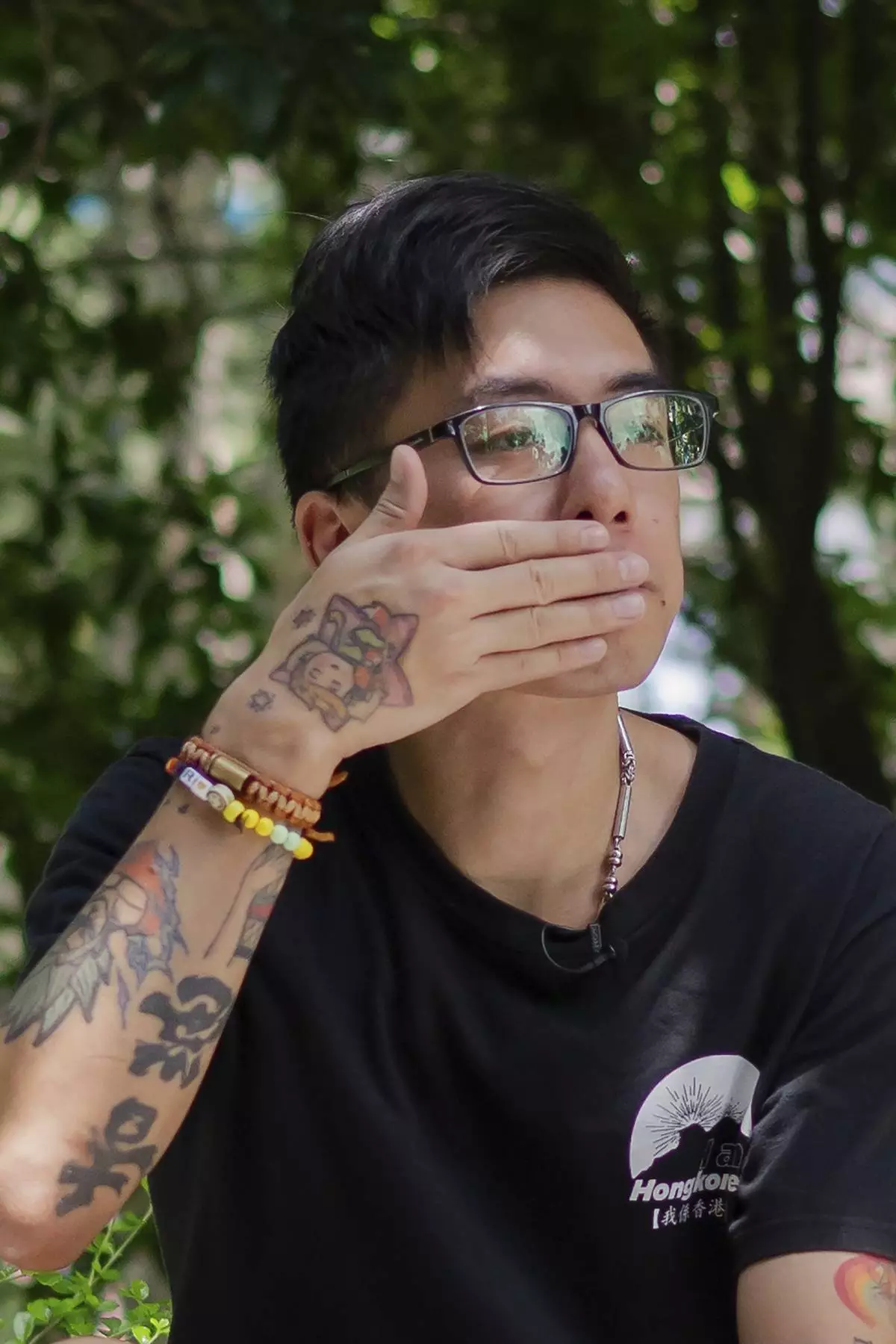
Joker Chan reacts during an interview, in Hong Kong, on June 28, 2024. Chan, 30, was sentenced in 2022 for posts containing slogans like “Liberate Hong Kong, revolution of our times,” which were popularly chanted during massive anti-government protests in the city in 2019. Authorities said such slogans could imply separating Hong Kong from China, a red line for Beijing. (AP Photo/Billy H.C. Kwok)
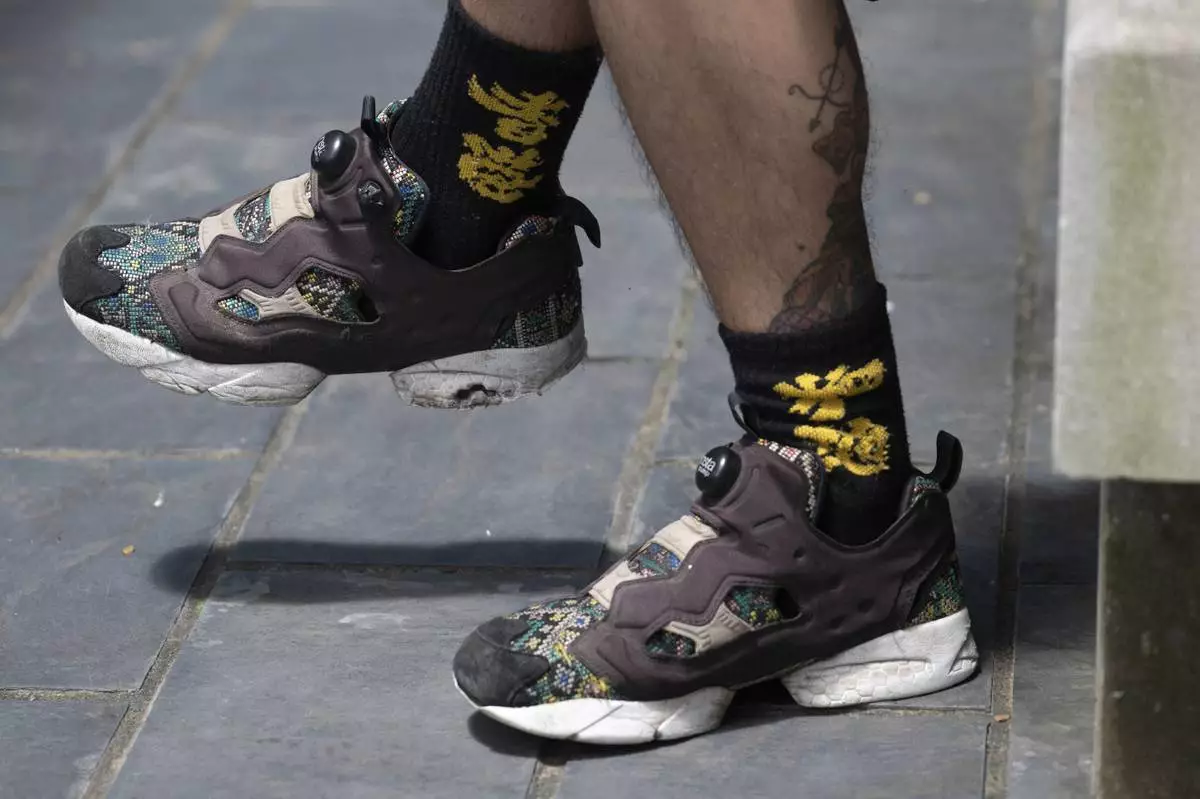
Joker Chan's socks embroidered with the words "Hong Kong" poses for photographs after an interview, in Hong Kong, on June 28, 2024. Five years after Hong Kong's massive anti-government protests erupted, the lives of many young people like Chan who were jailed or arrested during Beijing's political crackdown on the city's pro-democracy movement remain in limbo. (AP Photo/Billy H.C. Kwok)
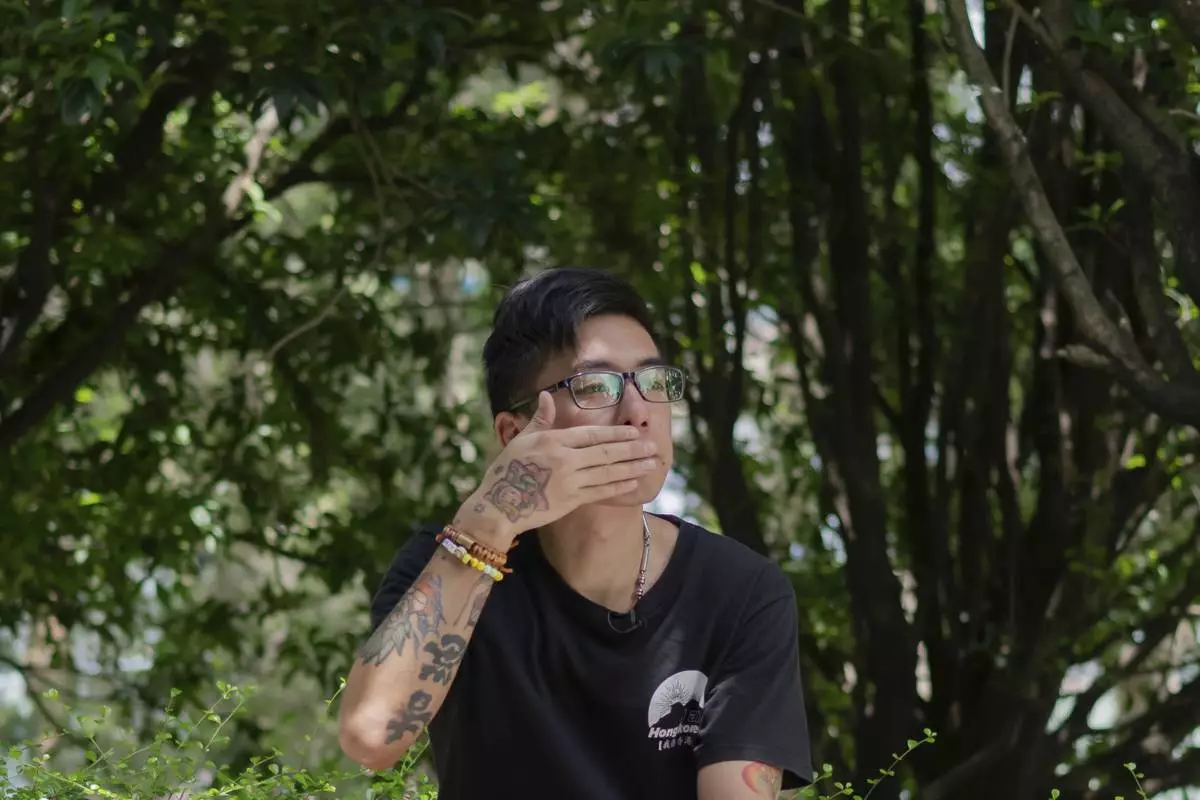
Joker Chan reacts during an interview, in Hong Kong, on June 28, 2024. After spending five months in jail for publishing seditious Instagram posts, Joker Chan returned to a harsh reality. Tattoos on his arms, legs and the sides of his neck, some related to anti-government protests, made his job search more difficult. (AP Photo/Billy H.C. Kwok)
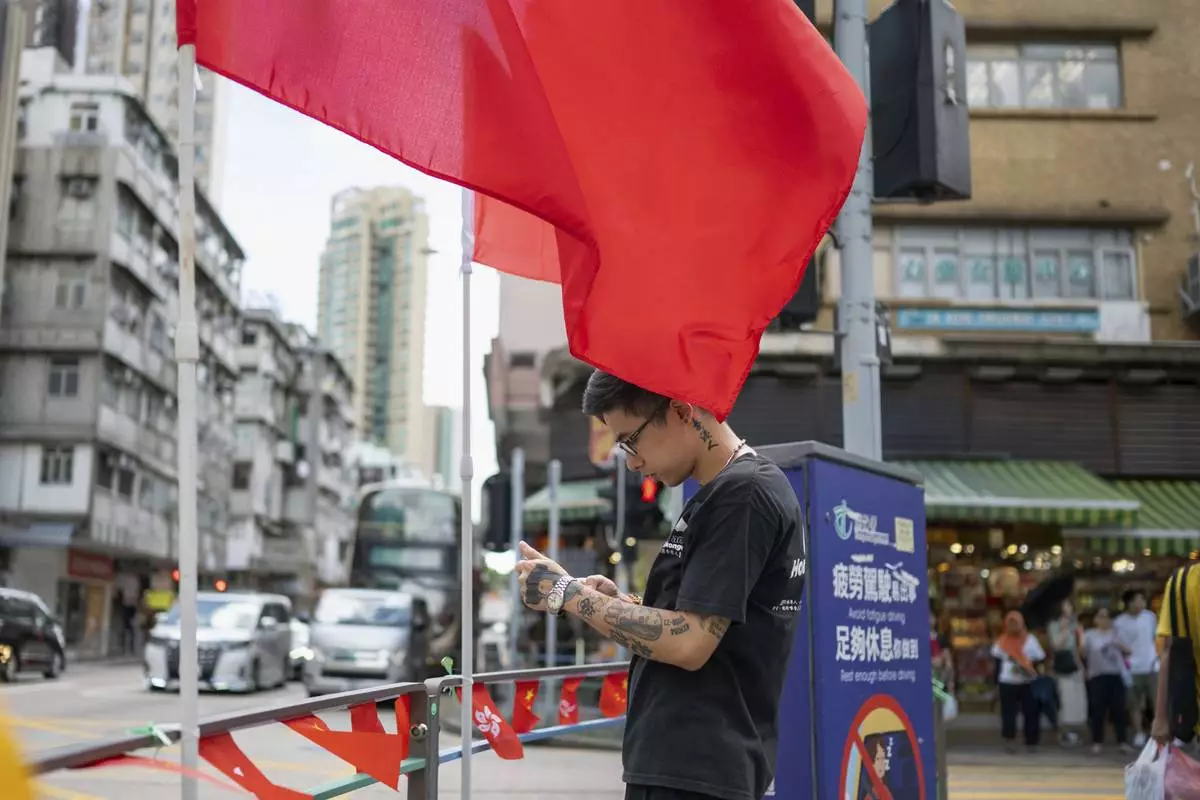
Joker Chan stands on the street of Hong Kong, on June 28, 2024. Chan, 30, was sentenced in 2022 for posts containing slogans like “Liberate Hong Kong, revolution of our times,” which were popularly chanted during massive anti-government protests in the city in 2019. Authorities said such slogans could imply separating Hong Kong from China, a red line for Beijing. (AP Photo/Billy H.C. Kwok)
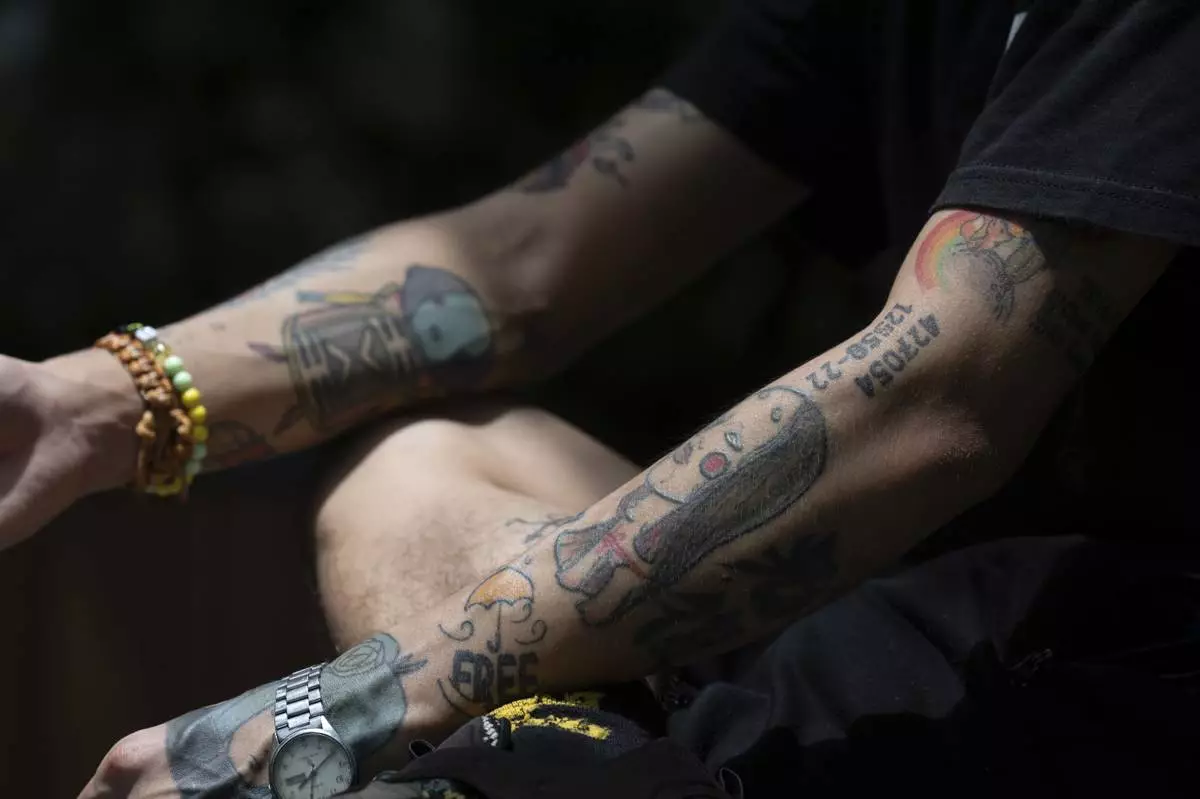
Joker Chan's tattoos including one of his inmate number can be seen after an interview, in Hong Kong, on June 28, 2024. After spending five months in jail for publishing seditious Instagram posts, Joker Chan returned to a harsh reality. Tattoos on his arms, legs and the sides of his neck, some related to anti-government protests, made his job search more difficult. (AP Photo/Billy H.C. Kwok)
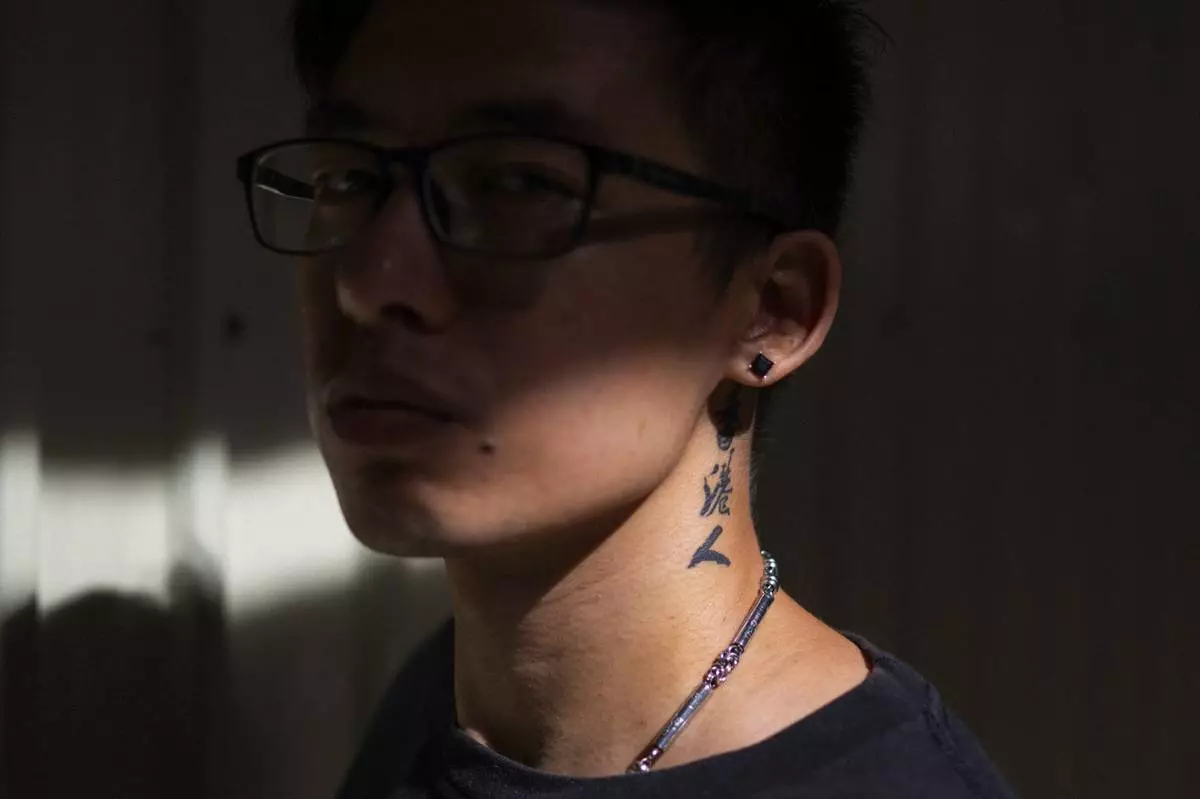
The words Hongkonger can be seen tattooed to the neck of Joker Chan as he poses for photographs after an interview, in Hong Kong, on June 28, 2024. Chan, 30, was sentenced in 2022 for posts containing slogans like “Liberate Hong Kong, revolution of our times,” which were popularly chanted during massive anti-government protests in the city in 2019. Authorities said such slogans could imply separating Hong Kong from China, a red line for Beijing. (AP Photo/Billy H.C. Kwok)
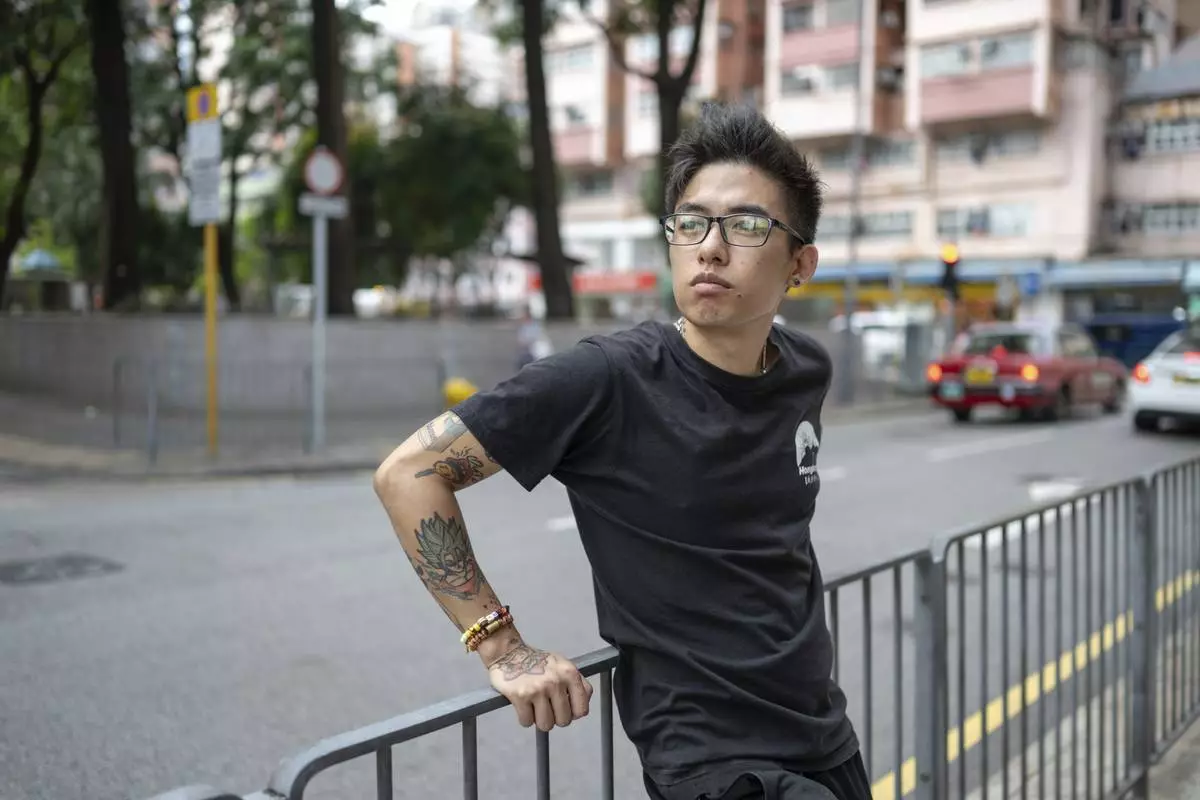
Joker Chan poses for photographs after an interview, in Hong Kong, on June 28, 2024. Chan, 30, was sentenced in 2022 for posts containing slogans like “Liberate Hong Kong, revolution of our times,” which were popularly chanted during massive anti-government protests in the city in 2019. Authorities said such slogans could imply separating Hong Kong from China, a red line for Beijing. (AP Photo/Billy H.C. Kwok)
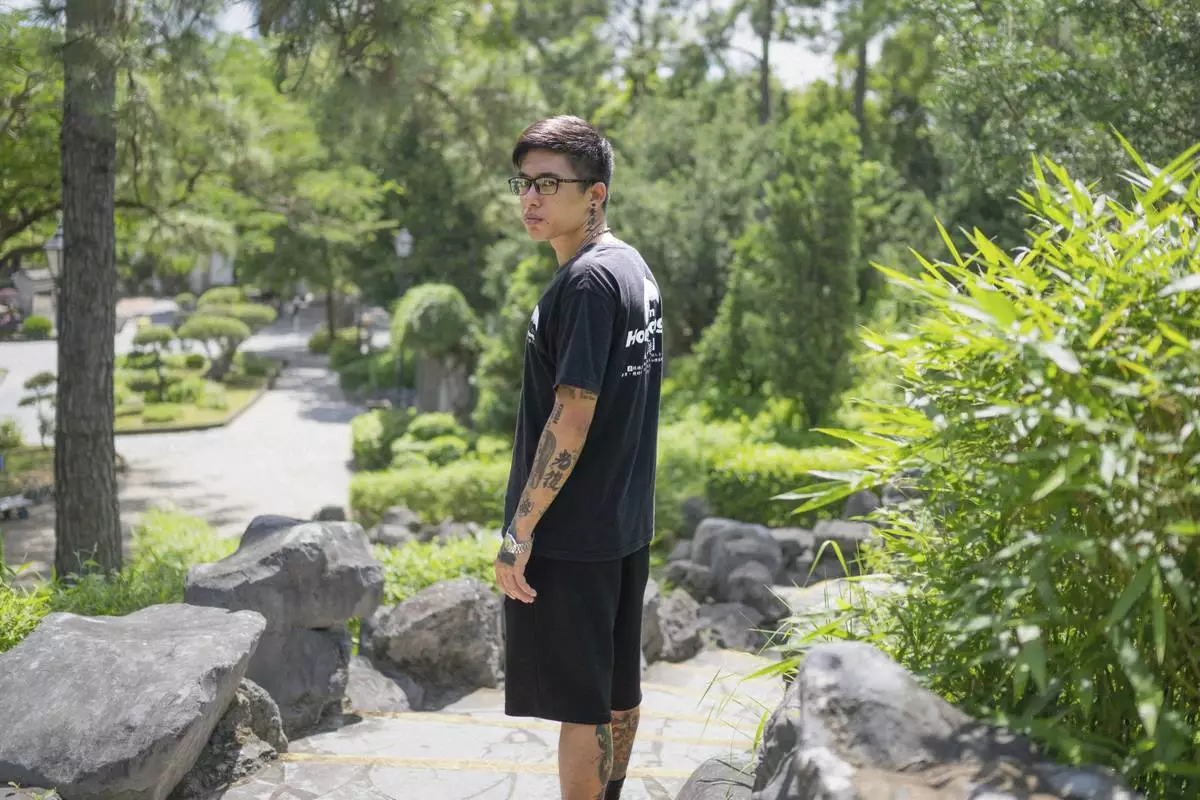
Joker Chan poses for photographs after an interview, in Hong Kong, on June 28, 2024. Chan, 30, was sentenced in 2022 for posts containing slogans like “Liberate Hong Kong, revolution of our times,” which were popularly chanted during massive anti-government protests in the city in 2019. Authorities said such slogans could imply separating Hong Kong from China — a red line for Beijing. (AP Photo/Billy H.C. Kwok)


